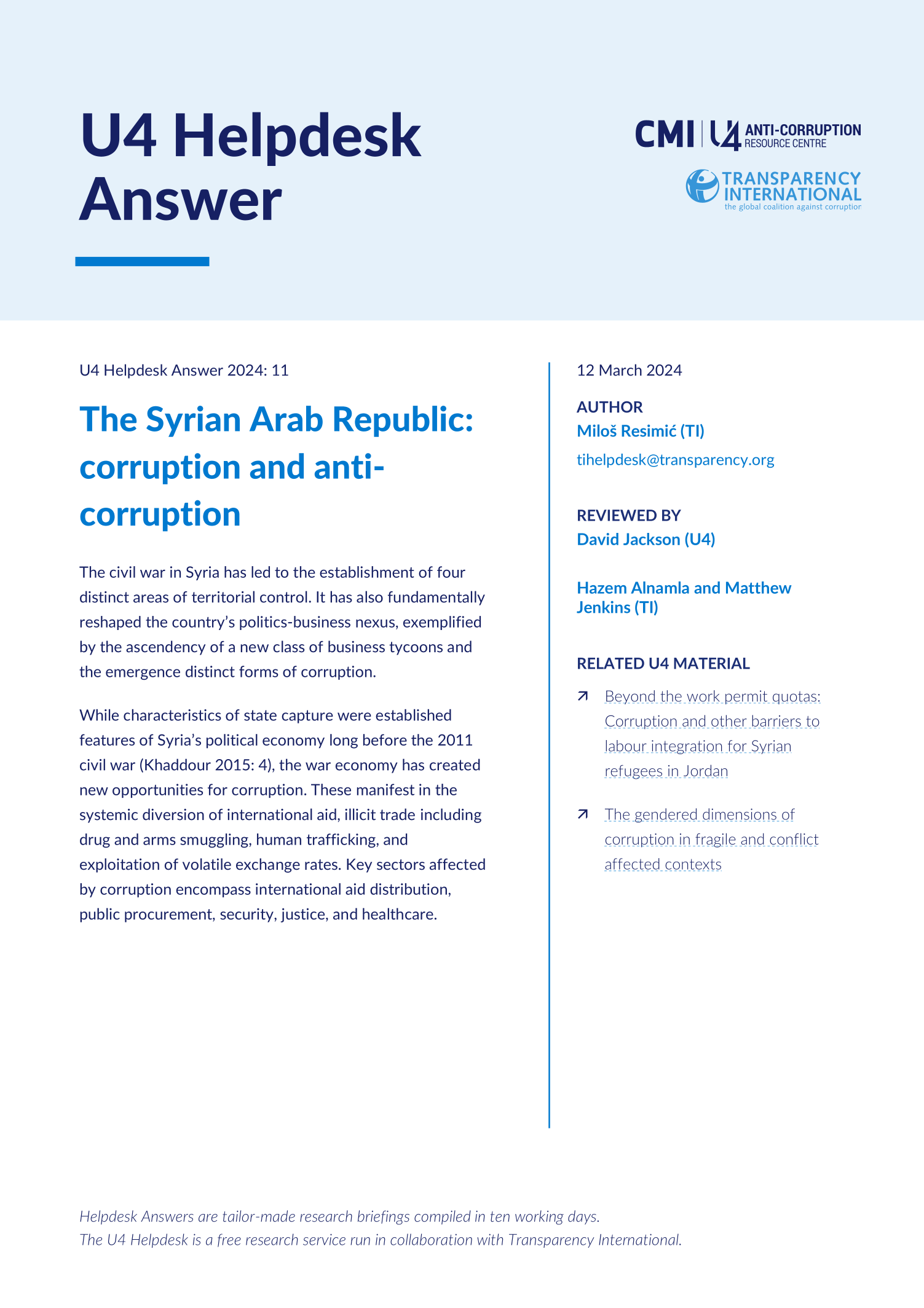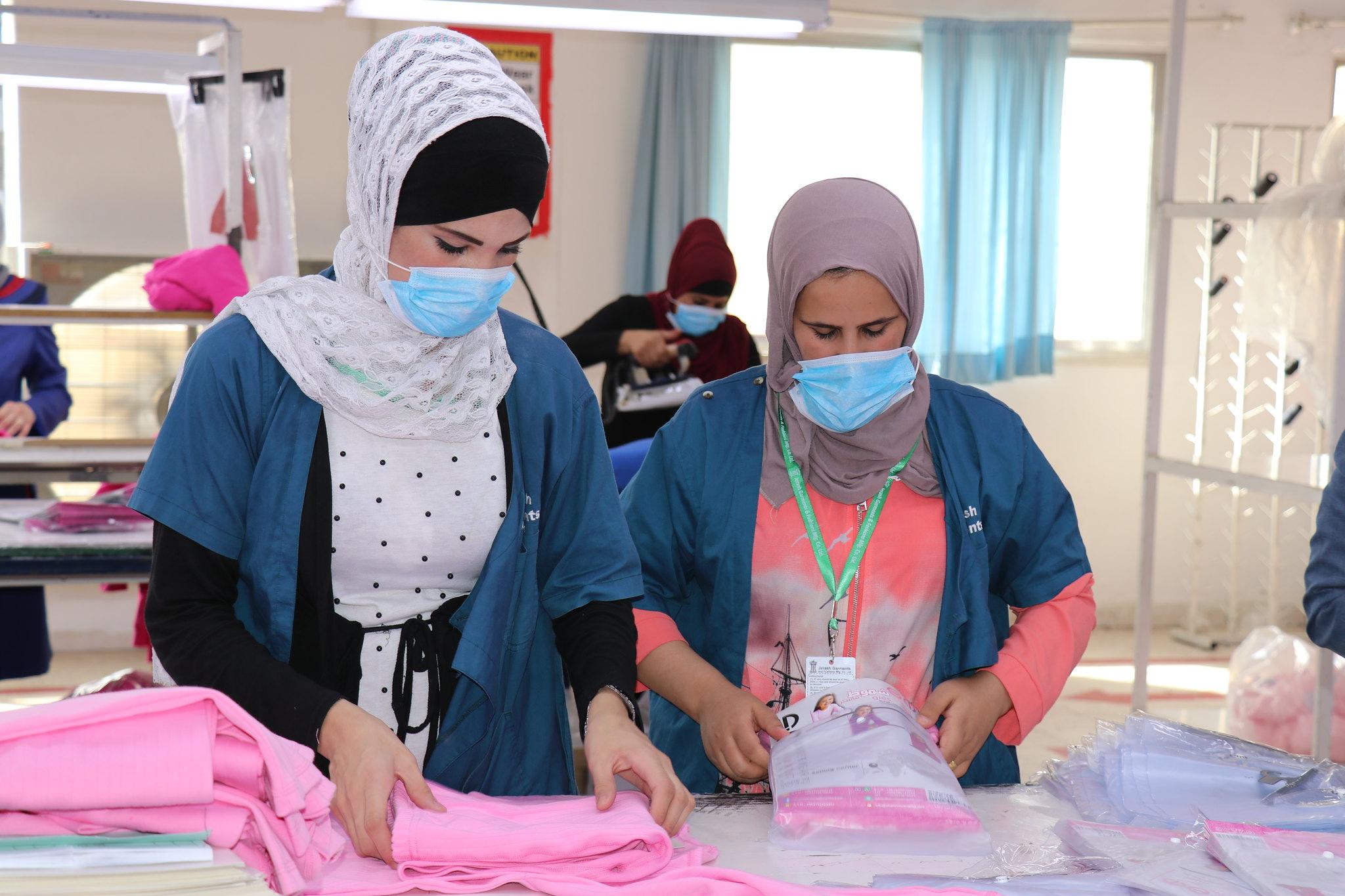Main points
- While the civil war has weakened the Syrian state, in government controlled areas the state apparatus has not disappeared altogether but rather transformed. This transformation, and the persistence of certain state functions, has facilitated various forms of predatory corruption, including administrative corruption and state complicity in organised crime.
- As constraints on corruption have evaporated in the chaos of war, both state and non-state actors have capitalised on new schemes for illicit profit. The new opportunities for corruption that have arisen in areas controlled both by the Assad government and opposition groups as a result of the war economy include extortion, protection rackets, the exploitation of volatile exchange rates and the trafficking of drugs, arms and human beings.
- By disrupting pre-war political-business relations, the conflict has also led to the emergence of a new class of business tycoons who have enriched themselves by exploiting the war economy.
- The main sectors affected by corruption include international aid, public procurement, security, justice and health. In particular, corruption results in the systemic diversion of international assistance funds to benefit local power brokers and de facto authorities.


